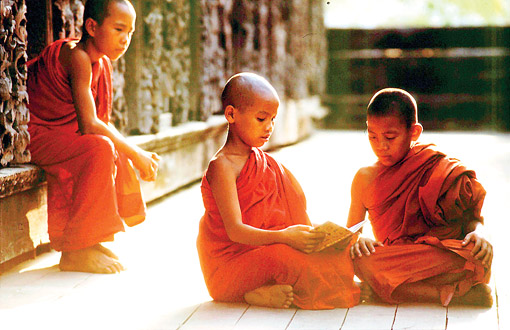
Why Buddhism Is Essential For The Success of India’s Social Movement?
Babasaheb Ambedkar started building the social movement of India’s discriminated with a view to create democratic and enlightened society. For him, democracy was not the end of the movement, but also the means. Democracy has many meanings and definitions and one of the definitions of the democracy is means of bringing social and economic transformation through peaceful means.
It was a genius of Babasaheb Ambedkar to mobilise the masses through peaceful methods. He viewed democracy as an attitude of respect and reverence to the fellow human beings. He started political parties for democratization. He used the political system and his political positions to create equal and just society. In the end, he embraced Buddhism publicly in 1956, but his footsteps were always towards the Buddha and one can many references to Buddhism in writings and speeches. We will try to understand the importance of Buddhism in establishing democracy in India as Babasaheb gave hint of it as early as 1941.
Indian History is Nothing but the History of Conflict between Buddhism and Brahmanism
Even a cursory glance at Indian history will prove that Indian history begins with the advent of the Buddha and Buddhism. Buddhism was India’s greatest contribution to the world. But, Buddhism met violence in India because its ideology was antithesis to the Brahmanism and in the end Brahmanism, being more political, destroyed Buddhism through the political means and political violence. Buddhism was then mutilated to the extent that it became weak. But the larger question remained and that was this. Where are the Buddhists who were at the forefront when India was Buddhist India? The Buddhist were assimilated and most of them were forced to become the untouchables.
The hatred between the Brahmanism and the untouchables is historic. They both despised each other and the hatred is mutual. Buddhism is thus linked with the history of untouchability. Even when the Buddha was alive, the arrogant Brahmans used to call him a Shudra and wastrel. Buddha launched frontal attack on the Varna system and subjugation of women. His Sangha transcended the fourfold Varna system and became an ideal of democratic society. This ideal of democratic society was attacked by the Brahmans. Most of the untouchables castes can find their linkages to Buddhism from all over India, conclusively establishing the connection between the Buddhism and Brahmanism. The mass movement to embrace Buddhism is important to create an all India fraternity based on deeper cultural values that will challenge the Brahmanical caste values.
Buddhism as a Means to Create Democratic Society
Buddhism is compatible to the democracy. Its core values of ethics, concentration, and wisdom are in tune with the democratic values. Therefore the Buddhist methods are very important. Babasaheb Ambedkar described Karma as an instrument of moral order. Human beings have choices of continuing the same patterns of individual and social behavior or break that cycle and create new patterns of individual and social behavior.
The caste system makes Karma a repetitive habit that produces the same patterns of individual and social behavior. While Buddhism frees the individuals and society from the trap of this individual and social Karma, and makes them create new patterns of Karma. Hence the practice of Buddhism sets in motion a new society as the individuals individually and collectively strive for the creation of new ways of relating and communicating with each other. Buddhism is important to create social habits that promotes individual liberty and community.
Buddhism and Buddhist Movement is Universal
Unlike Hinduism, Buddhism is universal. It is an international system. Though Buddhism is divided into many cultures, the essential Buddhism is common in all the cultures. Buddhism therefore challenges the narrow identities based on nation, caste, gender, and region.
It is remarkable to see how Buddhism grew from an order of 1250 monks to the worldwide Buddhist communities. Buddhism therefore links local communities to the wider communities and as the intra-Buddhist communication grows, the Buddhism will have an important voice in the world. Indian social movement needs support from international communities just like apartheid in South Africa needed opponents from all over the world.
Author – Mangesh Dhaiwale


+ There are no comments
Add yours